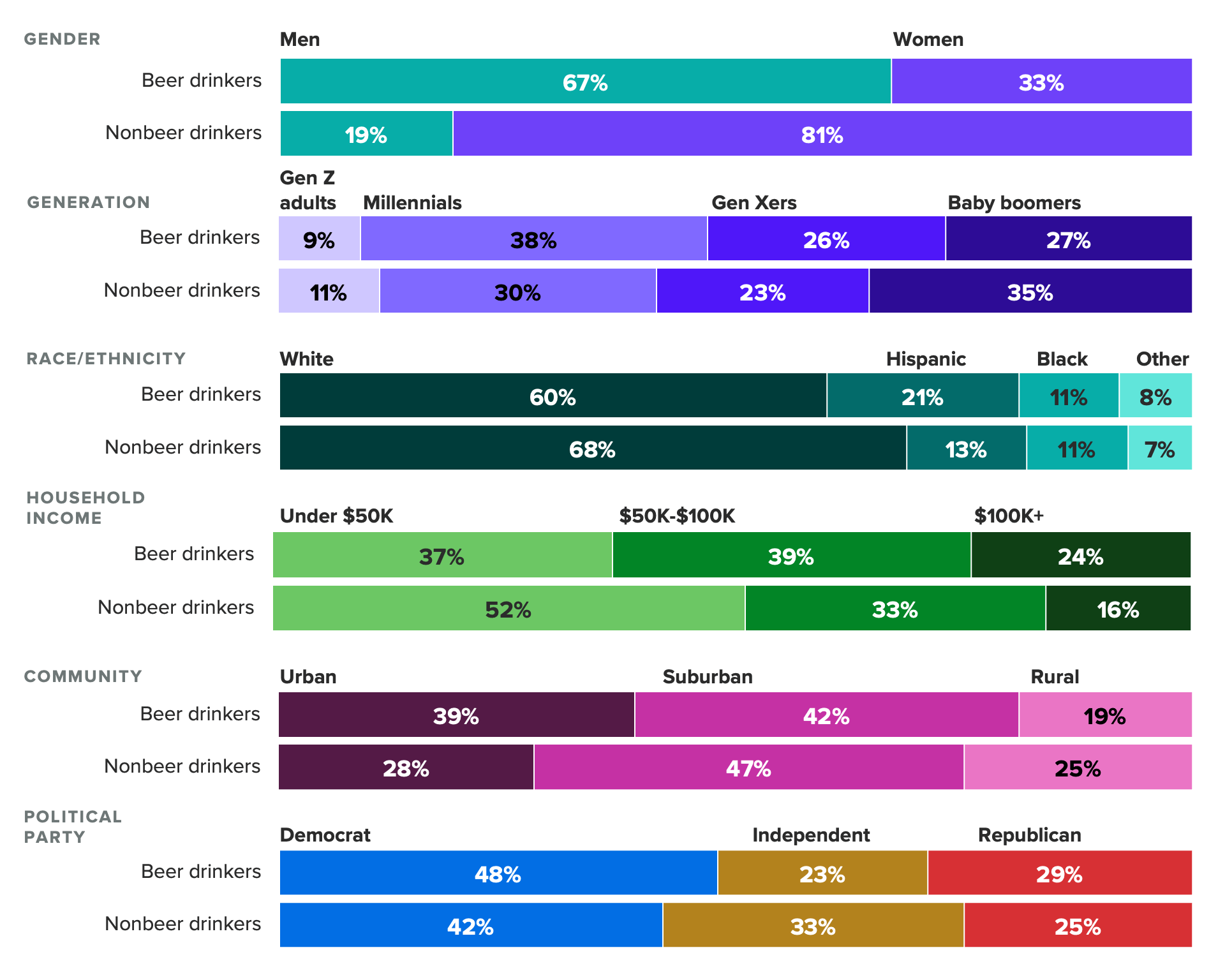The Majority of Beer Drinkers Support Brand Partnerships With Trans Spokespeople
For the latest global brand, media and marketing news and analysis, sign up for our daily brands news briefing.
After weeks of conservative backlash and boycotts against Anheuser-Busch InBev SA’s Bud Light for partnering with a transgender influencer, it turns out the marketers behind the brand’s campaign likely understand its market of beer drinkers better than their detractors do, according to a new Morning Consult survey.
On April 1, trans influencer Dylan Mulvaney posted a video to Instagram to promote a March Madness contest in partnership with Bud Light, the top-selling beer brand in the United States. The ad ignited a firestorm of online backlash and boycott calls from right-wing social media users and prominent Republican figures, including Florida Gov. Ron DeSantis and musician Kid Rock, who filmed himself shooting several cases of Bud Light with a rifle.
After nearly two weeks of silence, Anheuser-Busch CEO Brendan Whitworth released a statement, noting that the brand “never intended to be part of a discussion that divides people.” The statement did not make a direct reference to the anti-trans sentiment driving the controversy, which led some LGBTQ+ advocates to also call to boycott the brand, for not sufficiently defending its partnership with Mulvaney.
The brewer has since placed two marketing executives responsible for the collaboration on leave, creating another round of discourse about the value and risks of purpose-driven marketing strategies — particularly those that aim to support diversity and inclusion.
Per the Morning Consult survey, which was conducted about two weeks after the backlash began, a majority (53%) of beer drinkers in the United States say they would feel favorable toward a brand that works with a transgender spokesperson, compared with 47% of U.S. adults overall who said the same. Beer consumers were also more favorable toward this type of marketing partnership than were beauty, entertainment, pharmaceutical and auto consumers.
The survey also offered a demographic profile of Americans who said they drink beer at least once a month, which constitutes just over one-third of all U.S. adults. Monthly beer drinkers lean more Democratic and younger than those who said they do not drink beer at all, suggesting that the Bud Light controversy may not materially impact its brand long-term.
Nearly Half of Americans Support Brands’ Use of Transgender Spokespeople
Majority of Americans also support companies’ broader rebranding efforts to be more inclusive
- Democrats were the most supportive of both marketing practices among all major demographic and consumer groups. Gen Z adults, millennials and monthly beer drinkers followed behind as the cohorts with the next-highest levels of favorability toward brands’ adopting each tactic.
- At least half of entertainment and beauty consumers also said they were favorable toward brands’ partnering with transgender spokespeople and making advertising talent changes to expand inclusivity. (Consumers are respondents who indicated that they purchase the listed goods or services at least once monthly.)
- Meanwhile, Republicans expressed the most opposition by a wide margin. Just under half (49%) said they were unfavorable toward both marketing activities. About a quarter (26%) of Republicans said they would support a brand’s partnering with a trans spokesperson.

A breakdown of monthly beer drinkers
- A clear majority of monthly beer drinkers (67%) identify as men. In contrast, more than 8 in 10 (81%) U.S. adults who said they do not drink beer at all identify as women.
- The racial and generational differences between the two groups are not as stark. Still, monthly beer drinkers skew younger and less white than nonbeer drinkers. About 1 in 5 (21%) beer drinkers are Hispanic, compared with 13% of nonbeer drinkers.
- Monthly beer drinkers are also much more likely to have higher household incomes and live in urban areas compared with nonbeer drinkers.
- Nearly half of monthly beer drinkers (48%) described themselves as Democrats, significantly more than the share who identified as Republicans (29%).
Decisions, decisions
As the world’s largest brewer, Anheuser-Busch undoubtedly has internal data reflective of Morning Consult’s latest findings. It makes sense then that the company would leverage a diverse array of spokespeople to reach younger, progressive audiences — especially as more consumers look to cut back on drinking.
However, against the backdrop of an increasingly polarized American public, messaging around sensitive topics while maintaining broad brand appeal will remain one of the biggest challenges for marketers at companies both big and small. The Bud Light controversy will dissipate at some point, but another is sure to take its place soon.
The April 14-17, 2023, survey was conducted among a representative sample of 4,401 U.S. adults, with an unweighted margin of error of plus or minus 1 percentage point.
Ellyn Briggs is a brands analyst on the Industry Intelligence team, where she conducts research, authors analyst notes and advises brand and marketing leaders on how to apply insights to make better business decisions. Prior to joining Morning Consult, Ellyn worked as a market researcher and brand strategist in both agency and in-house settings. She graduated from American University with a bachelor’s degree in finance. For speaking opportunities and booking requests, please email [email protected].